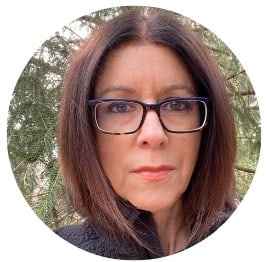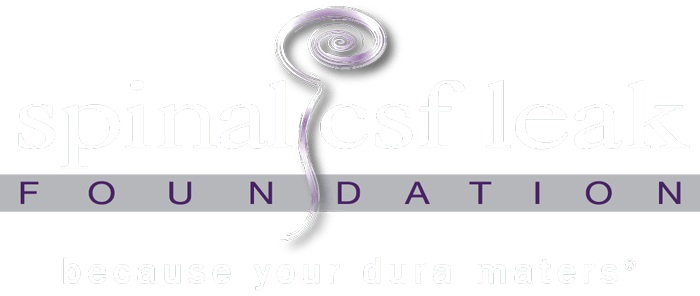
Jodi Blaszyk, PsyD, spinal CSF leak patient and clinical psychologist, discusses the third letter in her acronym ADAPT, for support in living with spinal CSF leak. To read the introduction to this series, click here.
The third letter in the ADAPT acronym is A, for Advocate (and educate)
Patients with spinal CSF leak often find they need to advocate for their care. One reason for this is that the condition is not commonly encountered in routine community practice. Becoming informed about our own diagnosis, and learning what we can about it, can help us in this kind of advocacy work. Whether that means standing up for ourselves in a medical setting, or sharing our spinal CSF leak story with others, these actions can help raise awareness in ways that not only benefit us but also others who may recognize themselves in our experience.
These efforts also benefit medical professionals, who might otherwise have not encountered a patient with the diagnosis, or whose only experience is limited to a textbook-type presentation.
Granted, advocating for yourself can be challenging, as it is easier for some people to speak up for themselves than for others. And the word “advocacy” itself can sound intimidating, bringing to mind fighting for justice or lobbying for attention or large, organized efforts to change minds. But there are “everyday” ways to advocate that can make a difference in your life and the lives of others.
Everyday advocacy
Two years ago, I dropped off information from the Spinal CSF Leak Foundation at my general practitioner’s office. She appreciated the information, and our face-to-face discussions felt enriched. As a result, I felt more supported in my care, I felt validated, and the whole experience felt like a part of a progressive movement toward healing in general.
After I moved, I found that my new local practitioner had immediate high interest in the condition. When I offered highlights from my experiences as patient, she commented that after hearing about my experience, she had a patient in mind who could possibly have a leak!
Today, I am at a point where I have the energy to advocate for others, and to continue to do so for myself. I recognize that no effort is too small. Even small actions (e.g., leaving information at a clinical office, sharing one’s experiences) sheds light for others to perhaps be “seen” and potentially treated.
Tools you can use
Whether in a bedfast experience or a post-treatment state, the Spinal CSF Leak Foundation invites patients to consider taking on whatever aspect of advocacy you can. These efforts can be through volunteering or political action or the small, everyday act of information-sharing—and can also be a meaningful way to make a difference and feel empowered.
One upcoming way for patients to advocate and educate is to take part in the Spinal CSF Leak Foundation’s upcoming leak week. This year’s awareness week, June 6-12, 2022, will feature new videos with stories of patients and caregivers; patients and families raising funds and awareness via duradash®; and the Foundation teaming up with Spinal CSF Leak Canada and the CSF Leak Association to bust myths and share facts about spinal CSF leak. How can you be involved? You can share the story of your own experience of spinal CSF leak on social media, you can share posts by the Foundation to help raise awareness, and you can of course participate in duradash® (from June 1-12) and wear purple on GO PURPLE day, June 8!
Here are some useful links to information you can share:
New Diagnostic Codes for spinal CSF leak
Glossary of terms about spinal CSF leak
Database of publication Abstracts
Raising Awareness / Fundraising
Up next:
Click here to read about the next letter in our acronym: P, for Plan.
Further Reading
This content is provided for general informational and educational purposes only and is not intended or implied to be a substitute for professional medical advice, help, diagnosis, or treatment. If you think you have an emergency, please call your doctor or emergency services immediately. To find a mental health provider, you can visit the ADAA Find a Therapist directory. If you are in a mental health crisis, call the National Suicide Prevention Lifeline at 988 or reach out to the Crisis Text Line by texting HOME to 741741 to connect with a crisis counselor.
